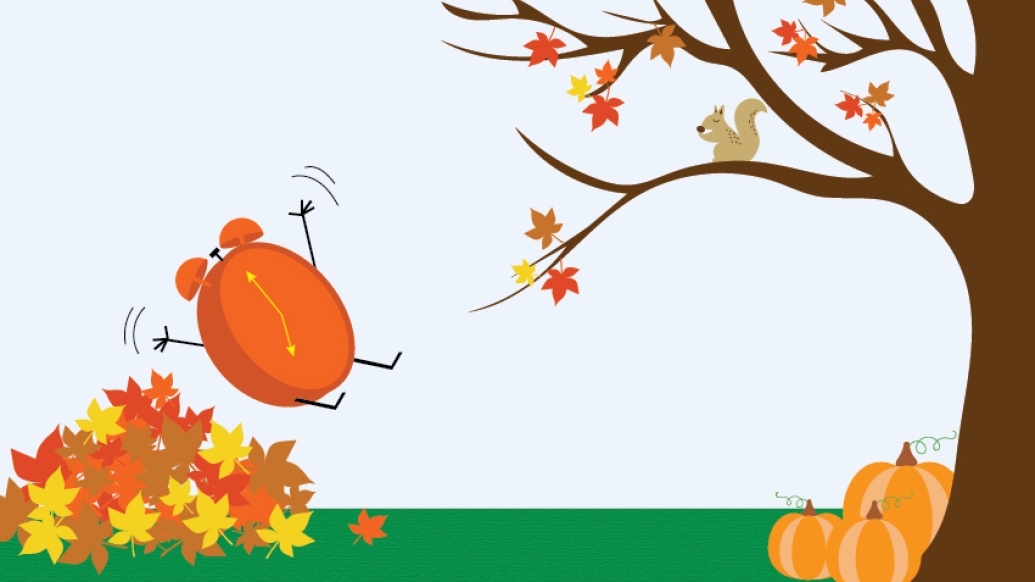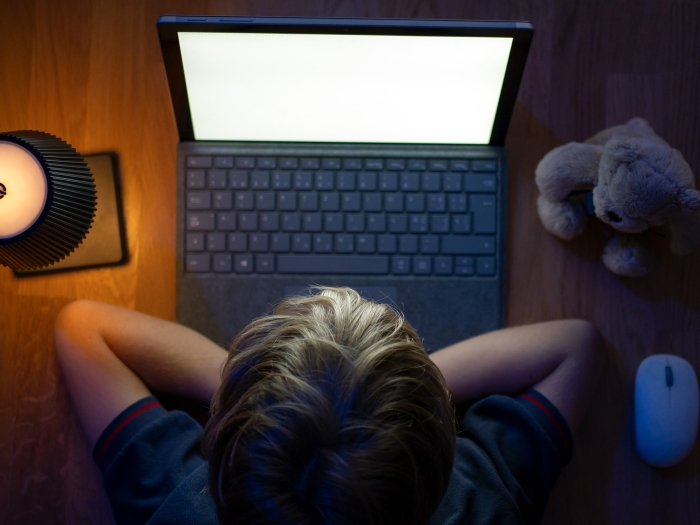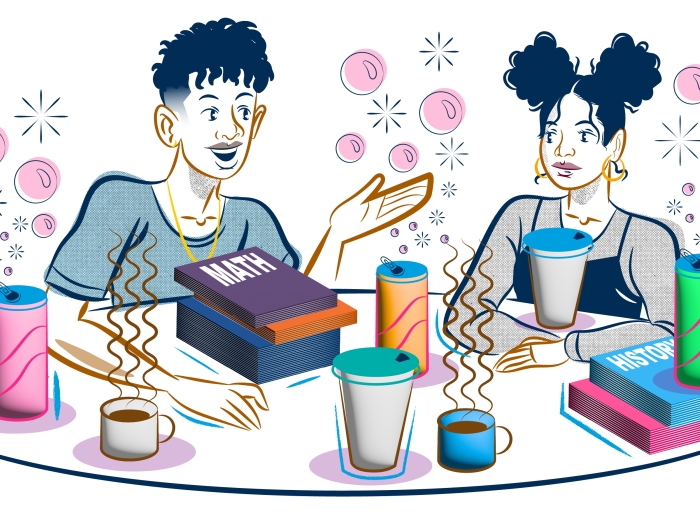Knowing it’s time to “fall back” can set parents into a panic. A pediatric sleep expert offers tips for surviving and thriving during the annual adjustment.
7:00 AM
Author |

The routine of setting clocks back an hour for daylight saving time's end comes around every year. But for many parents, it doesn't get any easier.
MORE FROM THE LAB: Subscribe to our weekly newsletter
Because of the change, early risers may wake even earlier, depriving them (and their parents) of much-needed sleep. And at bedtime, some children may become overtired as their internal clock is saying it's time for sleep — but the clock on the wall says they have an hour to go.
So, what's a parent to do? Pediatric psychologist Dawn Dore-Stites, Ph.D., a member of the pediatric sleep disorders team at C.S. Mott Children's Hospital, offers advice.
Anticipate how your child will respond to the adjustment. How did your child respond last year? How does he or she normally respond to interruptions in sleep routines?
"Most kids will roll with it, and helping them stay in bed 15 to 30 minutes later on the Sunday of the time change, or going to bed 15 to 30 minutes before their current bedtime will be enough to help them make the adjustment," Dore-Stites says. "If your child struggles with changes to his sleep routines, though, you'll want to start preparing for the transition up to a week ahead of time."
Dore-Stites suggests helping kids who will have a more difficult time adjusting by pushing bedtimes, wake times and naptimes back 10 to 15 minutes at a time every few days the week prior to the DST shift.
Fight the light. It will be lighter earlier in the morning during the initial adjustment period. Be sure the window coverings in your child's room are drawn tight, or consider investing in blackout shades or curtains to block light in the morning so your child will have an easier time resting through that extra hour.
Wear them out. Bedtime will feel like it's an hour too late, and that can make the evening routine very difficult for kids and adults. Dore-Stites suggests making sure children get plenty of physical activity during the day during the transition period.
Look for opportunities to work physical activity into the daytime or late afternoon. This can be more of a challenge for school-age kids, especially with temps cooling down and the sun setting earlier, making extra outside playtime difficult to manage. But Dore-Stites has advice for parents of school-age kids, as well.
"You can work physical activity into a variety of traditional household games," Dore-Stites says. "Even if you're playing tag in the basement before supper, that extra energy exertion can help."
SEE ALSO: School Night Bedtime Tips Every Parent Should Know
There's one important rule of thumb, though. "Make sure you wrap up the physical activities about 90 minutes before bedtime; otherwise your child's mind and body will still be in active mode when it's time for sleep."
Retune your routines. If you usually have a hard time getting your child out of bed in the morning, DST can actually do you a favor. Celebrate and reward your child if she finds herself waking easier in the mornings.
This is also a good time to weed out bad nighttime habits like allowing screen time right before bed.
Make nappin' happen. If your child is used to a nap, keep it. "Depriving your child of a nap, or letting her nap longer during the DST transition can backfire," Dore-Stites warns.
As for when to nap on Sunday and in the initial days of the transition, focus on the interval between sleep times. "Maintaining the amount of time between waking and when the child will go to bed is the most important factor to not compromise bedtime," she says.
Keep things simple. Dore-Stites suggests choosing a different week to incorporate any new demands into your mornings or evenings. Knowing when to pick your battles may also be helpful. "If your child is fading fast, you may choose to skip bedtime reading for a night or even two if that means you can avoid crossing over into overtired territory, which can sabotage a good night's sleep."
The good news is, the disruption in routines is temporary. "Even kids that have a tough time adjusting usually adapt within a week or two," says Dore-Stites.
If your child continues to struggle with the new routines or shows continued daytime sleepiness issues, a multidisciplinary sleep clinic may be able to help.

Explore a variety of health care news & stories by visiting the Health Lab home page for more articles.

Department of Communication at Michigan Medicine
Want top health & research news weekly? Sign up for Health Lab’s newsletters today!





